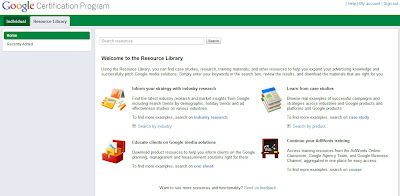Editor's Note: This is a cross-post from the Inside AdWords Blog. The Contextual Targeting Tool is now available across Asia Pacific.
This week, we’re launching the Contextual Targeting Tool to help you more easily reach customers as they spend time on millions of sites in the Google Display Network.
As you may already know, contextual targeting helps you reach potential customers as they read webpages related to your products or services. Now, with this tool, you can create contextually-targeted campaigns more easily and quickly, while generating more clicks and conversions for your campaigns.
What does the Contextual Targeting Tool do?
This tool automatically builds keyword lists that can be used to show your ads on relevant webpages in the Google Display Network. Tightly-themed keyword lists are the basis of effective contextual targeting, and with the Contextual Targeting Tool, you no longer have to build them manually. In minutes, you can build dozens, even hundreds, of keyword lists, scaling your campaign performance while ensuring accurate targeting for your ads. This means you can get more clicks and conversions for your campaigns and you can do it more quickly.
How do I use it?
Let’s say you sell soccer equipment and gear. Normally, you'd have to build out separate ad groups for each of your product lines, like soccer gear, soccer balls, soccer cleats, etc. With the Contextual Targeting Tool, simply type each product category into the search box, and the tool will automatically generate tightly-themed keyword lists for you. For example, when you enter soccer gear into the tool, you get more specific ad groups, such as youth soccer gear, discount soccer gear, soccer uniforms, soccer bags, etc.
 These new ad groups can help you get additional traffic and sales, as you may not think of creating them when manually building out your campaigns. Along with the new ad groups, the tool provides suggested bids and predicted placements to give you an idea of the types of sites in the Display Network where your ads can appear.
These new ad groups can help you get additional traffic and sales, as you may not think of creating them when manually building out your campaigns. Along with the new ad groups, the tool provides suggested bids and predicted placements to give you an idea of the types of sites in the Display Network where your ads can appear.
The Contextual Targeting Tool has been available to advertisers using AdWords Editor. This week, all advertisers will be able to access it from the Opportunities tab in their AdWords account. You'll still need AdWords Editor to implement the ad groups in your account for now (download AdWords Editor). However, this requirement will be lifted and you’ll be able to implement new ad groups directly from your AdWords account in the coming months.
You can learn more about using the Contextual Targeting Tool by watching this video. We hope this tool will help you more easily and efficiently reach your goals with your Display Network campaigns.
Posted by Matthew Davison, Agency Team




